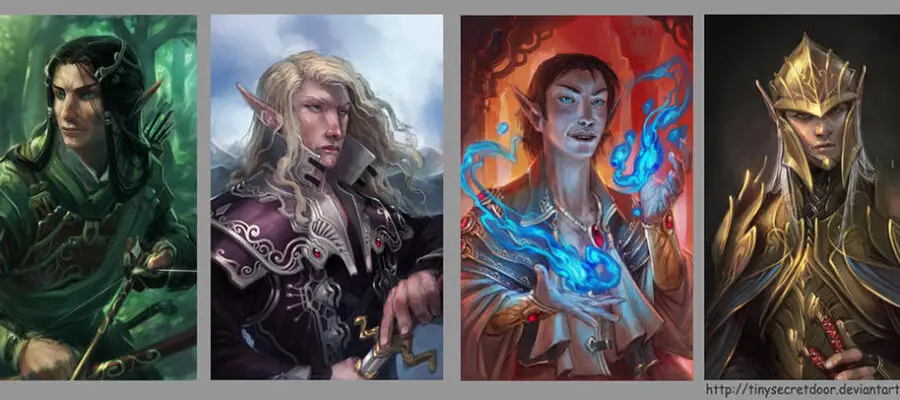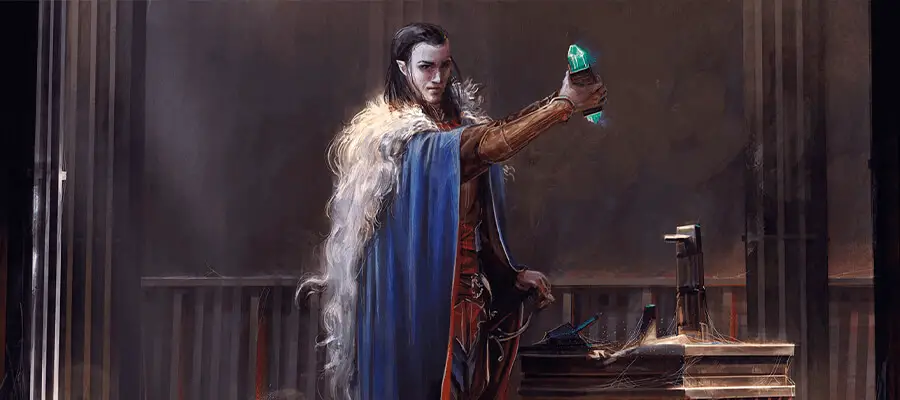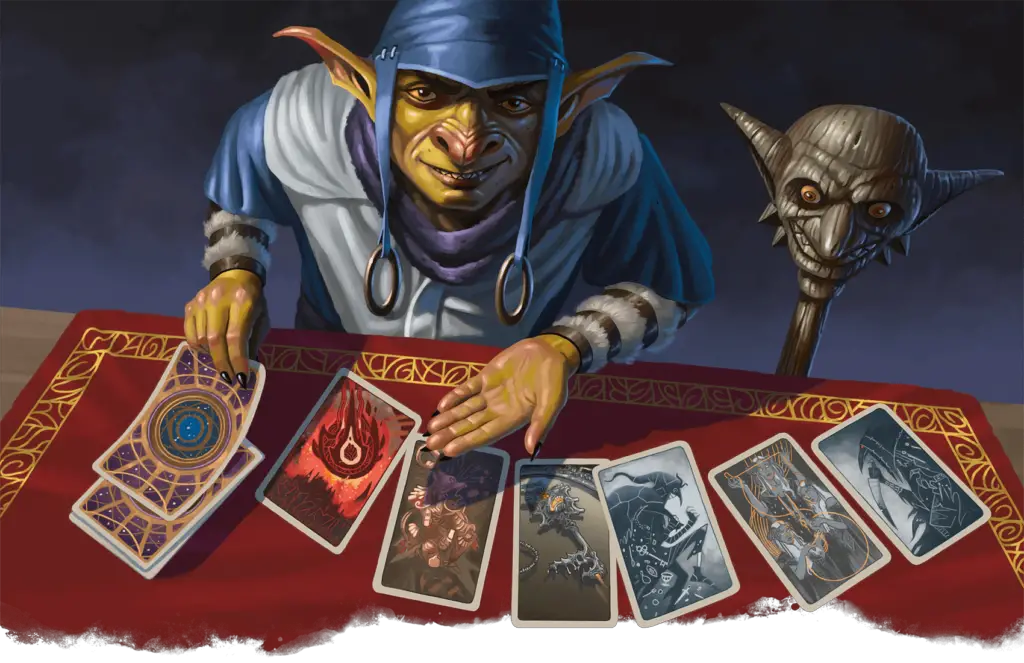Fantasy Portraits by TinySecretDoor, Creative Commons Attribution-Noncommercial-No Derivative Works 3.0 License
Enrich your Dungeons and Dragons game by developing a comprehensive character background.
In my experience as a player and Dungeon Master, I’ve learned that there is no end to how in-depth a character’s backstory can go. However, often neglected are key details in a character’s background that a player and Dungeon Master alike can tap into to intertwine a character with the ongoing story more deeply. Because these details are often left out of a backstory, we’ve developed a series of questions that players can fill out and share with their Dungeon Masters to enrich their experience within the game.
The core of these questions revolve around the inner workings of a character: what are their fears, motivations, short-comings, and strengths? How have these things shaped the character? These questions will hopefully spark within the Dungeon Master and player alike means in which their character can be challenged to develop.
Save this free downloadable and ask your players to fill it out. A Dungeon Master who has access to this spreadsheet can use it as a continual reference when developing plot points, and players can refer to it to fuel their character choices.

Character Background Worksheet
Enrich your game by developing a comprehensive character background using our worksheet. Share with your Dungeon Master and have your fellow players add on in their own tab!
What Details to Include in Your Character Background
For more in-depth character background development, see DragnaCarta’s article 10 Questions to Make a Great D&D Character Backstory.
Emotions
It’s often easier to determine the emotions of a character based on the stories we tell about them. A player needs to think about three specific events in their character’s history to discover their motivations. To simplify the process of the worksheet, a Dungeon Master could instead just ask for details for the following three prompts and their sub-questions:
- List a Fond Memory
- From this experience, what do you fear?
- What positive trait has this experience built in your character?
- What flaw has this experience built in your character?
- How does this experience motivate your character in their goals?
- List a Tragic Memory
- From this experience, what do you fear?
- What positive trait has this experience built in your character?
- What flaw has this experience built in your character?
- How does this experience motivate your character in their goals?
- List a Regretful Memory
- From this experience, what do you fear?
- What positive trait has this experience built in your character?
- What flaw has this experience built in your character?
- How does this experience motivate your character in their goals?
Motivations
Exploring why they are in the campaign at all, a player should recall what prompted their character’s reason to leave home in the present. A few further questions that would flesh out a character’s call to adventure:
- Why did your character leave the comfort of home to adventure?
- What was their call to adventure?
- What does your character hope to accomplish by adventuring?
While each character will have their own reasons to begin adventuring, a Dungeon Master can facilitate the congruence of Call to Adventure between players by exploring the Hero’s Journey model well-known within the writing community. See our article on this topic for more details.
Relationships
While a character is being thrown into the world of their Dungeon Master’s creation, they should have real and current ties to the world around them. This often results in the form of relationships to non-player characters. Players should explore the following relationships the Dungeon Master can include in-game:
Parents or Guardians: Who raised the character? Who do they call family? How did the parents meet? Was their union happy? Under what circumstances did they come to have a child? Were the parents neglectful or dutiful? How did they make money? What is their level of education? What is their standing in the community?
Siblings: How close is the character to their siblings? What is their relationship to them? Are they close or distant? Are they proud or ashamed?
Other Notable Family: Who else were they close to? Was there anyone in their extended family who took advantage of them? Is there anyone in a high establishment of power?
Romantic Relationships: Is the character close to anyone romantically? Is their love unrequited? Do they fear opening up emotionally? Do they fear losing someone close? Does their love interest motivate them in their goals?
Enemies: Is there someone who is out to get the character? Is the character cautious about revealing their identity because their enemy has spies? Does your character underestimate just how much their enemy hates them?
Friends: Does the character have anyone they can rely on? Did friendships dwindle or are they active?
Mentors: Who taught the character their craft and skills? What has become of this mentor? Are they active or retired? Is the mentor well-respected or shunned in their community?
Alliances: Is the character a part of any guilds, organizations, religious societies, or military orders? Are these alliances likely to lend a helping hand to the character?
Rivals: While learning their skills and trades, did someone set themselves up as the character’s rival? In what way do they wish to one-up the character? How far is the rival willing to go?
Deity: Has the character sworn fealty to any deities? Is their worship a major part of their character choices? Does the deity require anything of the character?
Personality
This section is intended to help a player more naturally roleplay their character. By answering these prompts, a player will better understand the idiosyncrasies of their character and get an idea of how they would respond in situations.
A player should understand the following aspects of their character: Diet, likes, dislikes, vices (what temps the character?), virtues (redeeming qualities), moral compass (separate from their alignment, focusing on small-scale decisions), habits, trinkets and mementos (and their origins), flaws, and strengths.
Flaws and strengths are explored in the Emotions section above, but a player can include more than the answers stemming from the three character experiences (happy, tragic, and regrettable memories).
Conclusion
By exploring these traits, a player can become more in-tune with their character, and a Dungeon Master can set up meaningful interactions within the campaign. Download our Character Background Worksheet to streamline the process, and have each player in your campaign fill out their own tab so that a Dungeon Master can have a ready-to-use guide to their character motivations, goals, emotions, and experiences.





Hey Opal!
Just wanted you to know that we utilized this last night in our session and it was fantastic. Instead of sending it out to them, I walked them through a few of the questions, in game, and then we RPed some of them. Good stuff!
That’s a great idea! I know filling out forms can be a bit tedious and not so fun for some, so using these prompts in a roleplaying capacity is brilliant! Thanks Ian! Were there any questions you omitted or added?
So we already had a bit of a baseline for the characters. This was our second night of character development. So what I did was I had each of them, in turn, give the group a kind of general overview of their character. How they look, their general disposition towards others…that type of thing. When they started this, I asked them to think of the fond memory, tragic memory, and regretful memory and once everyone was done with their overview we went back around and they shared those memories.
Out of those, we RPed one of them for each of the characters to help them develop not only that part of their story, but also to help them suss out how they would interact, as well as use it as a chance to introduce some world lore and history into the game.
I then had them pick 3 or 4 of the adjective words to describe their character to give us a baseline for RP interactions moving forward.
It was really great stuff. I was amazed at how much content we were able to get through because we had it guided like that. About double the amount we would normally be able to roll through!